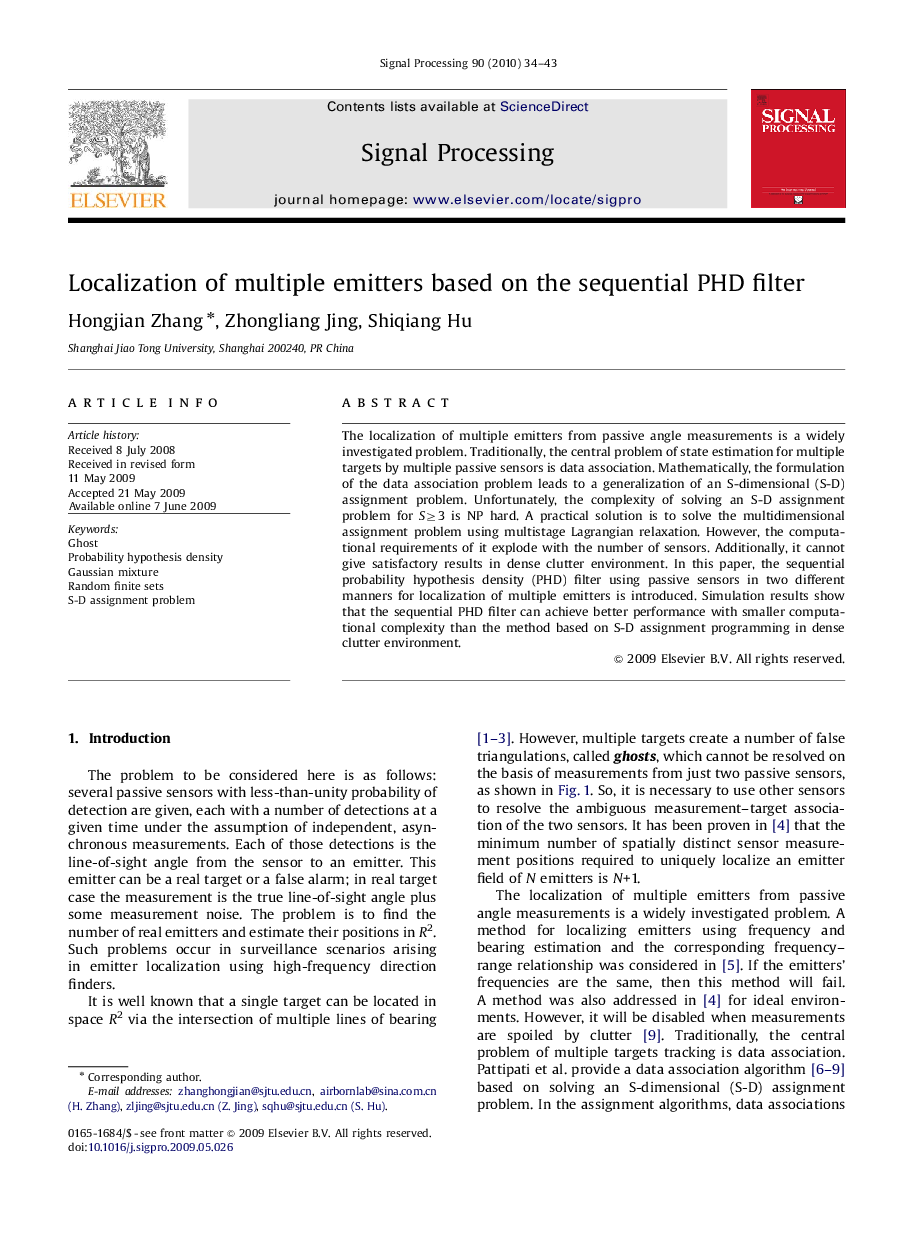| Article ID | Journal | Published Year | Pages | File Type |
|---|---|---|---|---|
| 563835 | Signal Processing | 2010 | 10 Pages |
The localization of multiple emitters from passive angle measurements is a widely investigated problem. Traditionally, the central problem of state estimation for multiple targets by multiple passive sensors is data association. Mathematically, the formulation of the data association problem leads to a generalization of an S-dimensional (S-D) assignment problem. Unfortunately, the complexity of solving an S-D assignment problem for S≥3 is NP hard. A practical solution is to solve the multidimensional assignment problem using multistage Lagrangian relaxation. However, the computational requirements of it explode with the number of sensors. Additionally, it cannot give satisfactory results in dense clutter environment. In this paper, the sequential probability hypothesis density (PHD) filter using passive sensors in two different manners for localization of multiple emitters is introduced. Simulation results show that the sequential PHD filter can achieve better performance with smaller computational complexity than the method based on S-D assignment programming in dense clutter environment.
